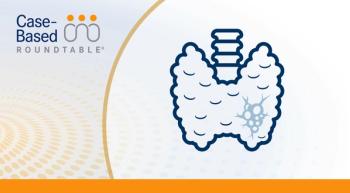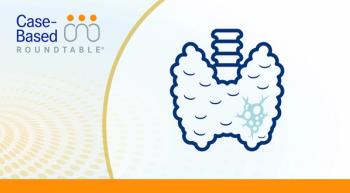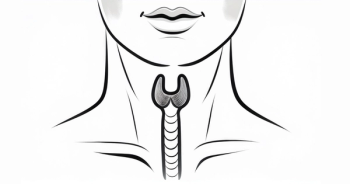
Exploring the Need for Second-Line Treatments in Thyroid Cancer

Cesar Augusto Perez, MD, discusses one of the top unmet needs that exists in the thyroid cancer space.
Cesar Augusto Perez, MD, hematologist and medical oncologist at Florida Cancer Specialists & Research Institute’s Lake Nona Cancer Center & Drug Development Unit, discusses one of the top unmet needs that exists in the thyroid cancer space.
Significant progress has been made in the thyroid cancer space, especially in the last decade, with the approvals of sorafenib (Nexavar) and lenvatinib (Lenvima). However, following the FDA approvals of sorafenib and lenvatinib, experts developed a large class of patients who had progressed on either agent, and faced the question of what to do next?
The phase 3 COSMIC-311 trial (NCT03690388) investigated cabozantinib (Cabometyx) compared with placebo in patients whose disease progressed on first-line or second-line therapy. Here, cabozantinib showed significantly improved rates of progression-free survival (PFS) vs placebo (median PFS not reached vs 1.9 months). Additionally, the agent demonstrated a 15% objective response rate.
While cabozantinib is now considered the second-line therapy of choice for patients with thyroid cancer, particularly those with disease progression on a first-line VEGFR multikinase inhibitor with radioactive iodine (RAI)-refractory differentiated thyroid cancer, Perez highlights the urgent need for additional options in the second-line setting.
Additionally, Perez highlights the need for newer and better treatments for patients with anaplastic thyroid cancer.
Transcription:
0:09 | In general terms, the patients that do not have BRAF mutations, so the patients with differentiated thyroid cancers that have BRAF mutations, unfortunately, do not have great second-line options. We have cabozantinib, and that, I think, is a fairly effective therapy, but the duration of response is not great, as is expected with most of the second-line patients.
0:32 | For patients with anaplastic thyroid cancer, only a minority of them have a BRAF mutation and the rest are very difficult to treat. Some of them can respond to immunotherapy, but otherwise, there is a lot of need in the treatment of patients with anaplastic thyroid cancer, which is a small population, but certainly, there is a lot of need for them.










































